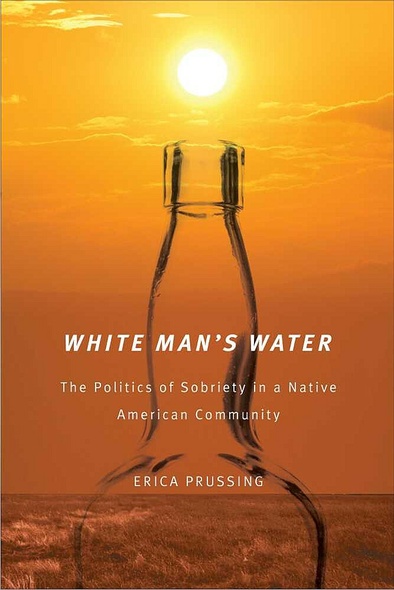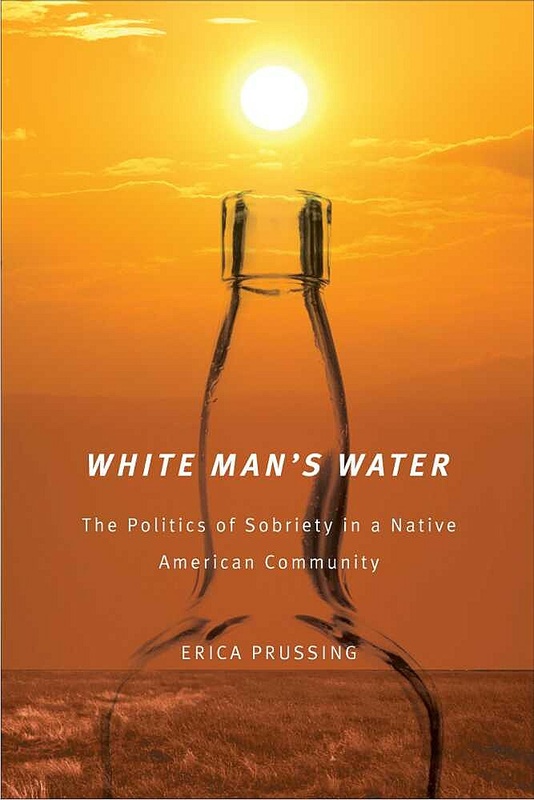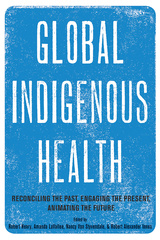White Man's Water
The Politics of Sobriety in a Native American Community
SERIES:
The University of Arizona Press
In recent years, efforts to recognize and accommodate cultural diversity have gained some traction in the politics of US health care. But to date, anthropological perspectives have figured unevenly in efforts to define and address mental health problems. Particularly challenging are examinations of Native peoples’ experiences with alcohol.
Erica Prussing provides the first in-depth assessment of the politics of Native sobriety by focusing on the Northern Cheyenne community in southeastern Montana, where for many decades the federally funded health care system has relied on the Twelve Step program of Alcoholics Anonymous. White Man’s Water provides a thoughtful and careful analysis of Cheyenne views of sobriety and the politics that surround the selective appeal of Twelve Step approaches despite wide-ranging local critiques. Narratives from participants in these programs debunk long-standing stereotypes about ”Indian drinking” and offer insight into the diversity of experiences with alcohol that actually occur among Native North Americans.
This critical ethnography employs vivid accounts of the Northern Cheyenne people to depict how problems with alcohol are culturally constructed, showing how differences in age, gender, and other social features can affect involvement with both drinking and sobriety. These testimonies reveal the key role that gender plays in how Twelve Step program participants engage in a selective and creative process of appropriation at Northern Cheyenne, adapting the program to accommodate local cultural priorities and spiritual resources. The testimonies also illuminate community reactions to these adaptations, inspiring deeper inquiry into how federally funded health services are provided on the reservation.
This book will appeal to readers with an interest in Native studies, ethnography, women’s studies, and medical anthropology. With its critical consideration of how cultural context shapes drinking and sobriety, White Man’s Water offers a multivocal perspective on alcohol’s impact on health and the cultural complexities of sobriety.
Erica Prussing provides the first in-depth assessment of the politics of Native sobriety by focusing on the Northern Cheyenne community in southeastern Montana, where for many decades the federally funded health care system has relied on the Twelve Step program of Alcoholics Anonymous. White Man’s Water provides a thoughtful and careful analysis of Cheyenne views of sobriety and the politics that surround the selective appeal of Twelve Step approaches despite wide-ranging local critiques. Narratives from participants in these programs debunk long-standing stereotypes about ”Indian drinking” and offer insight into the diversity of experiences with alcohol that actually occur among Native North Americans.
This critical ethnography employs vivid accounts of the Northern Cheyenne people to depict how problems with alcohol are culturally constructed, showing how differences in age, gender, and other social features can affect involvement with both drinking and sobriety. These testimonies reveal the key role that gender plays in how Twelve Step program participants engage in a selective and creative process of appropriation at Northern Cheyenne, adapting the program to accommodate local cultural priorities and spiritual resources. The testimonies also illuminate community reactions to these adaptations, inspiring deeper inquiry into how federally funded health services are provided on the reservation.
This book will appeal to readers with an interest in Native studies, ethnography, women’s studies, and medical anthropology. With its critical consideration of how cultural context shapes drinking and sobriety, White Man’s Water offers a multivocal perspective on alcohol’s impact on health and the cultural complexities of sobriety.
Erica Prussing is an assistant professor of anthropology and community and behavioral health at the University of Iowa. She has published articles in Ethos and Culture, Medicine, and Psychiatry.
Preface
1 Introduction: Sobriety and Subjectivity in Local Worlds
Part I: Understanding Alcohol in Cultural Context
2 Misrecognizing Local Moral Worlds
3 Contextualizing “White Man’s Water”
Part II: Women’s Narratives: Social Positioning, Subjectivity, and Sobriety
4 Becoming a Person
5 Family Lives and Gendered Experience
6 Narratives of Sobriety: Reconfiguring the Empty Center
Part III: Challenges and Possibilities for “Culturally Appropriate” Alcohol Services
7 Reservation Health Care and the Politics of Local Control
8 Concluding Thoughts
Epilogue 1, Stephanie Timber
Epilogue 2, B. A. Brown
Notes
Works Cited
Index






